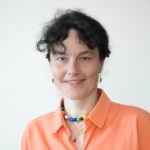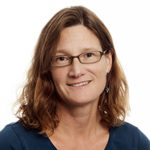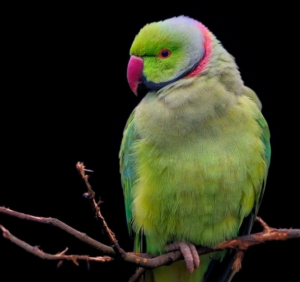GENETICS is pleased to announce four new editors for the Experimental Technologies and Resources section of the journal: Markus Affolter, Alejandro Sánchez Alvarado, Kristin Tessmar-Raible, and Julie Hayner Simpson.
Markus Affolter

Markus Affolter is a developmental biologist at the Biozentrum of the University of Basel and his lab has been interested in how cells form complex branched organs during development, both in Drosophila and zebrafish. After his postdoc in the laboratory of Walter J. Gehring from 1988 to 1993, he started his own group at the Biozentrum studying the interplay between cell-cell signaling and transcription. Over the years, and inspired by the use of live imaging combined with genetic and reverse genetic approaches, the study of cell behaviour during morphogenesis and its molecular control has moved into the focus of interest. More recently, the lab has pioneered the development and use of functionalized protein binders as a means to directly manipulate protein function in order to better study their function in vivo. The establishment and use of methods allowing for direct, acute, and reversible protein manipulations should contribute to a better understanding of how different cellular activities are regulated to ultimately be capable to sculpt developing organs.
Alejandro Sánchez Alvarado

Alejandro Sánchez Alvarado received a BS in molecular biology and chemistry from Vanderbilt University in Nashville, TN, and a PhD in pharmacology and cell biophysics from the University of Cincinnati College of Medicine in Cincinnati, OH. He performed postdoctoral and independent research at the Carnegie Institution of Washington, Department of Embryology in Baltimore, MD. In 2002, he joined the faculty of the University of Utah School of Medicine in Salt Lake City where he held the H.A. & Edna Benning Presidential Endowed Chair. In 2005, he was named a Howard Hughes Medical Institute Investigator. He joined the Stowers Institute for Medical Research in Kansas City in 2011 and became Executive Director and Chief Scientific Officer of the Stowers Institute in 2020.
Sánchez Alvarado is a member of the National Academy of Science, the American Academy of Arts and Sciences, and the Latin American Academy of Sciences, a Kavli Fellow of the National Academy of Sciences USA, a Fellow of the Marine Biological Laboratory in Woods Hole, MA, and a recipient of a National Institutes of Health MERIT award and the EE Just Medal for Scientific Achievement. He has served on numerous scientific advisory committees and boards including the National Advisory Council of the National Institute of General Medical Sciences, National Institutes of Health, and he presently serves on the Board of Directors of American Century Investments.
Kristin Tessmar-Raible

Kristin Tessmar-Raible is a professor for chronobiology at the University of Vienna, Austria. She has her initial training in molecular and developmental neurobiology. Upon studying the brain and photoreceptors of the marine bristle worm Platynereis dumerilii from the neuro-evolutionary perspective during her postdoc, she came across the fascinating chronobiology of this animal, which uses an inner calendar set by the moon for its precise reproductive timing. Since starting her own lab in 2008, she has started to disentangle the molecular mechanisms underlying solar and lunar timing. Her interests also more generally cover the adaptations and evolution of rhythms and clocks in animals, as well as their particular relevance for marine ecology.
Julie Hayner Simpson

Julie H. Simpson has studied aspects of genetics and neuroscience in fruit flies at every stage of her career. She earned an AB in Molecular Biology from Princeton working with Dr. Yash Hiromi on R7 cell fate specification and a PhD from UC Berkeley studying Roundabout signaling in axon guidance with Dr. Corey Goodman. She was a Helen Hay Whitney Postdoctoral Fellow with Dr. Barry Ganetzky in the Genetics Department at UW Madison, adapting temperature sensitive ion channel mutants as tools to map neurons controlling fly behaviors, and she was a Group Leader at the HHMI Janelia Research Campus from 2006-2015 screening for neurons contributing to feeding, courting, and grooming behaviors in Drosophila. Dr. Simpson has been involved in genetic tool development, including the dBrainbow adaptation, developing additional attP landing sites, and building reagents to target the ventral nerve cord and neurons based on neurotransmitter or Hox specification. She likes to chair the Tools and Technology session at GSA’s Annual Drosophila Research Conference and write reviews on optogenetic advances. She moved to UC Santa Barbara, in the Department of Molecular Cellular and Developmental Biology and Neuroscience Research Institute, where she teaches Genetics and researches neuronal control of the grooming motor sequence.













